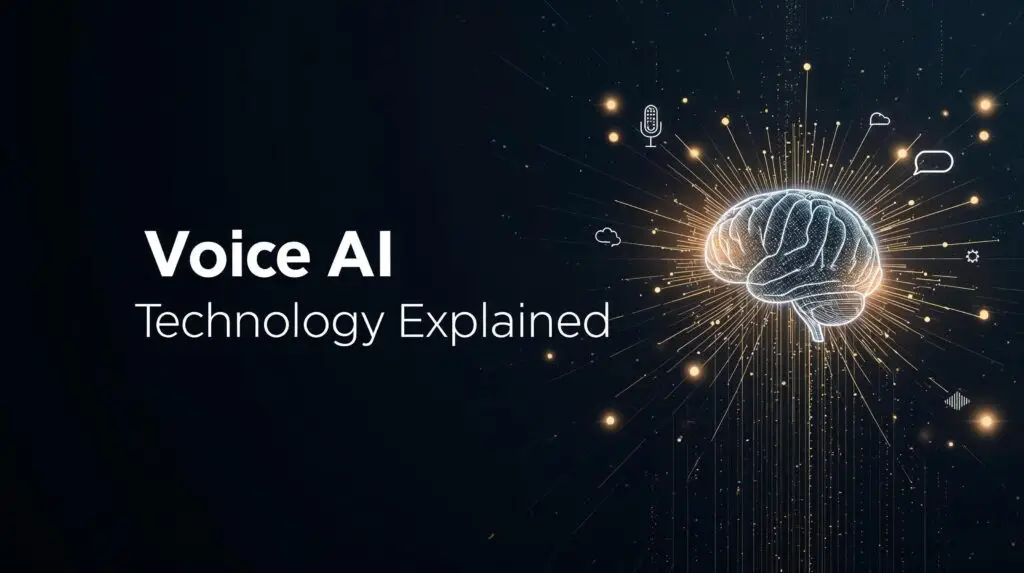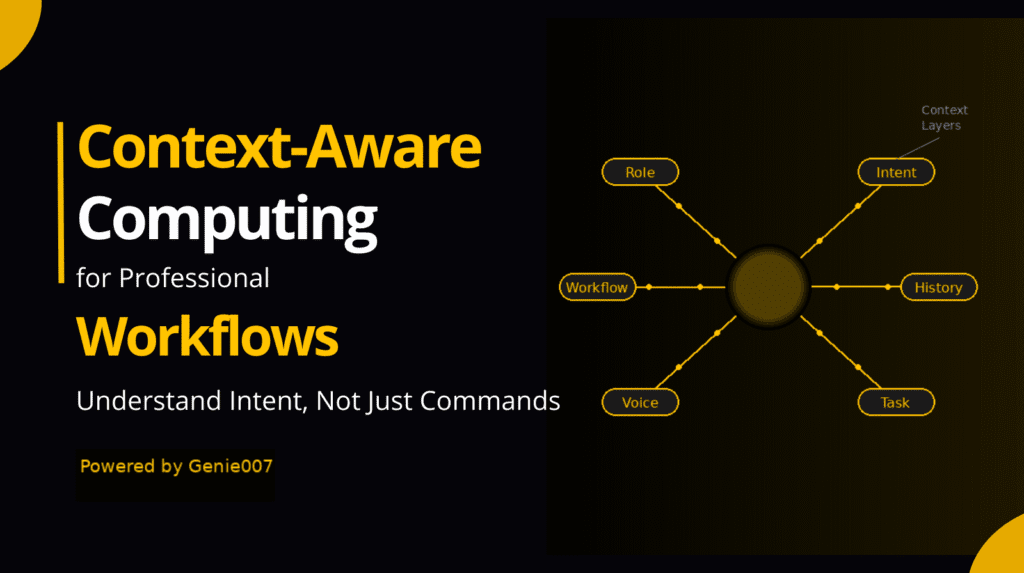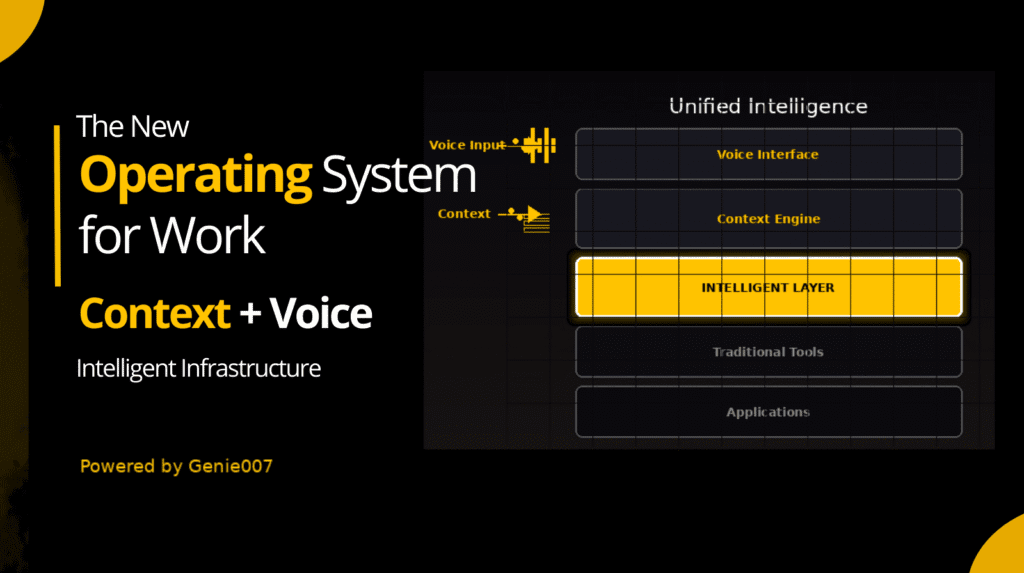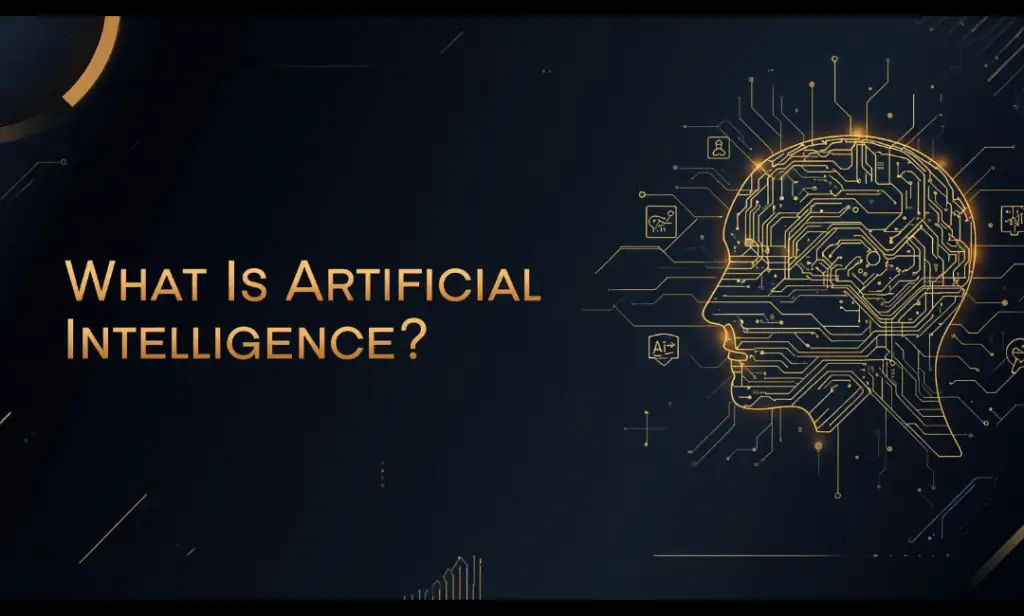From smart speakers to AI assistants like Genie007, voice technology has reshaped the way people interact with devices. What once required keyboards and screens now happens through natural conversation. You speak, the AI understands, and it responds instantly.
This guide explains the inner workings of Voice AI technology, how it converts sound waves into meaning, how it learns language context, and why tools like Genie007 represent the next evolution in hands-free productivity.
What Is Voice AI Technology?
Voice AI technology refers to the integration of artificial intelligence with speech recognition and natural language processing (NLP) to enable machines to understand, interpret, and respond to human voice commands.
It’s the intelligence that allows you to say, “Send an email,” or “Summarize this paragraph,” and see the action completed immediately. Beyond convenience, Voice AI drives automation, accessibility, and faster communication across industries.
Core Components of Voice AI
Voice AI systems rely on several interlinked technologies:
- Automatic Speech Recognition (ASR): Converts spoken words into text.
- Natural Language Processing (NLP): Analyzes meaning, grammar, and intent.
- Text-to-Speech (TTS): Converts AI responses back into human-like voice.
- Machine Learning (ML): Continuously improves accuracy through user interactions.
Each component contributes to a seamless, human-like conversation between user and machine.
How Voice AI Works Step by Step
Although the process feels instant, a Voice AI system like Genie007 performs several operations in milliseconds.
| Step | Process | Description |
|---|---|---|
| 1. Audio Capture | Microphone Input | The AI listens to sound waves and captures speech. |
| 2. Noise Filtering | Signal Processing | Filters out background noise for clearer recognition. |
| 3. Speech Recognition | ASR Engine | Converts phonemes (sounds) into corresponding words. |
| 4. Context Understanding | NLP Model | Interprets intent and context behind the spoken words. |
| 5. Response Generation | AI Reasoning | Determines the best action or reply based on user intent. |
| 6. Output Delivery | Text or Voice | Displays or speaks the result back to the user. |
Genie007 refines this process with contextual learning — it doesn’t just transcribe, it understands what you mean.
Why Voice AI Is Transforming Modern Workflows
In 2025, Voice AI is more than a novelty; it’s becoming the backbone of digital communication and productivity. Here’s why.
1. Speed and Efficiency
Typing slows down creative flow. Speaking allows professionals to produce content up to three times faster. Genie007 converts spoken thoughts into polished writing within seconds, improving turnaround times for messages, reports, and content.
2. Accessibility
Voice AI removes barriers for users with mobility challenges or repetitive strain injuries. It also supports hands-free work environments, such as healthcare, logistics, and creative industries.
3. Multilingual Communication
Modern businesses operate globally. Genie007 supports 140+ languages, allowing users to communicate naturally across cultures without switching settings or translation tools.
4. Context Awareness
Unlike basic dictation apps, Genie007 understands tone, emotion, and purpose. Whether drafting a business proposal or a social post, it adjusts writing style to match the platform and audience.
5. Data Privacy
Security is critical when using voice tools. Genie007 processes commands locally on the device, ensuring private and compliant data handling. Nothing is stored or shared without user consent.
Core Technologies Powering Voice AI
Automatic Speech Recognition (ASR)
ASR technology identifies and transcribes speech using large neural network models trained on diverse voice samples. It accounts for accents, dialects, and background noise to achieve high accuracy.
Natural Language Processing (NLP)
NLP allows AI to interpret meaning and intent. For example, when you say “Send the last file to Sarah,” NLP helps Genie007 understand that “the last file” refers to your most recent document.
Natural Language Understanding (NLU)
NLU extends NLP by analyzing user emotion and context. It allows AI to distinguish between commands like “Cancel that” (a command) and “That was canceled” (a statement).
Text-to-Speech (TTS)
TTS technology generates human-like responses. Advanced systems can even match tone and rhythm to make digital communication sound natural.
Machine Learning and Personalization
Voice AI improves over time by learning from user patterns — speech speed, vocabulary, tone, and preferences. Genie007 continually adapts to your unique way of speaking, increasing accuracy and reducing errors.
Real-World Applications of Voice AI
Voice AI has become essential across multiple industries:
| Industry | Application | Benefit |
|---|---|---|
| Business & Marketing | Drafting emails, reports, and social posts | Saves hours in manual writing |
| Customer Service | Voice-based chatbots and call analysis | Enhances response speed and accuracy |
| Healthcare | Medical transcription and hands-free record entry | Reduces admin time, supports accuracy |
| Education | Dictation, translation, and learning support | Makes studying more interactive |
| Manufacturing | Voice-controlled systems and checklists | Improves efficiency and safety |
| Content Creation | Script writing and brainstorming | Boosts creativity through speech input |
Voice AI vs. Traditional Input Methods
| Feature | Typing/Manual Input | Voice AI (Genie007) |
|---|---|---|
| Average Speed | 50–60 WPM | 150+ WPM |
| Hands-Free Operation | No | Yes |
| Context Understanding | Limited | Advanced NLP |
| Multilingual Support | Manual | 140+ Languages |
| Learning Capability | None | Adaptive AI |
| Data Privacy | Varies | Local-first encryption |
| Accessibility | Keyboard required | Fully accessible by voice |
Challenges in Voice AI Development
While Voice AI has advanced rapidly, developers still face challenges:
- Accent Variability: Accents, slang, and regional expressions require vast data sets for accurate recognition.
- Background Noise: Public or open spaces can reduce transcription quality.
- Contextual Misinterpretation: AI must differentiate similar phrases based on tone or situation.
- Privacy and Security: Managing data ethically remains crucial.
Companies like Genie007 tackle these issues using advanced context modeling, noise filtering, and edge computing for private, high-accuracy results.
How Genie007 Uses Voice AI Differently
Genie007 takes a holistic approach to productivity and communication:
- Works across all browsers and platforms — no extensions required.
- Processes input locally for maximum privacy.
- Understands contextual tone to generate human-sounding writing.
- Adapts vocabulary for professional, creative, or casual conversations.
- Supports real-time editing commands such as “bold that,” “add heading,” or “summarize section.”
These innovations make Genie007 not just a dictation app but a comprehensive productivity partner.
Best Practices for Using Voice AI Effectively
- Speak Naturally: Avoid over-articulation; conversational tone yields better results.
- Minimize Background Noise: Use a clear microphone or headset.
- Use Voice Commands for Formatting: “Add bullet point,” “new paragraph,” “bold heading.”
- Train Custom Vocabulary: Add technical terms or product names.
- Review Output Briefly: AI is accurate, but quick proofreading maintains professionalism.
The Future of Voice AI Technolog
Voice AI is rapidly evolving into conversational AI — systems that understand emotion, context, and personality. Future assistants will predict needs before users ask. Imagine Genie007 reminding you to reply to a client message or summarizing your last meeting automatically.
With advancements in neural networks, personalization, and privacy-first architecture, Voice AI will continue to merge convenience with intelligence, making work more human and effortless.







